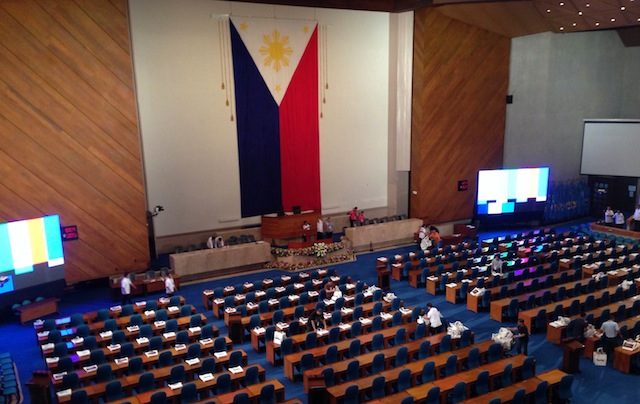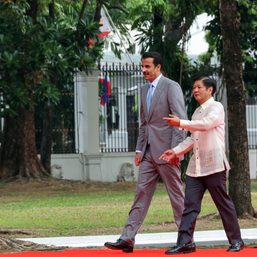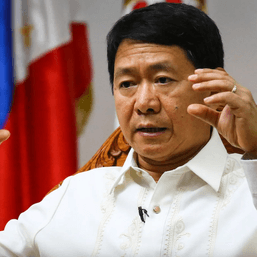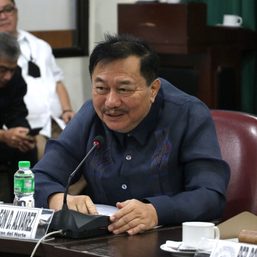SUMMARY
This is AI generated summarization, which may have errors. For context, always refer to the full article.

MANILA, Philippines – The House of Representatives under the 19th Congress passed a piece of legislation that would give President Ferdinand Marcos Jr. the power to eliminate redundant government agencies in the executive branch.
House Bill No. 7240 hurdled the lower chamber on Monday, March 13, with 292 lawmakers voting in the affirmative, and three others – all from the Makabayan bloc – voting in the negative.
Rightsizing the bureaucracy is a policy directive of the President, a priority that he made clear during his first State of the Nation Address in July 2022.
Under the approved measure, a committee on rightsizing the executive branch (CREB) – led by the executive secretary as chairperson and budget secretary as co-chairperson – would be created to oversee the implementation of the law.
Other members of the committee would include the National Economic and Development Authority secretary, the Civil Service Commission chairperson, and the Anti-Red Tape Authority director general.
Their role is to prepare an overall change management program to ensure a smooth transition among agencies involved.
The committee has the authority to identify areas of dysfunctions and bureaucratic efficiencies, and eventually submit recommendations to the President.
The bill also provides for the retirement benefits and separation incentives of affected personnel who hold permanent appointments.
The power of the President under the bill, and the existence of the CREB, would last only three years from the effectivity of the law.
Since Marcos assumed office in June 2022, he has already abolished a number of government agencies through executive orders, in line with the rightsizing principle: the Presidential Anti-Corruption Commission, the Office of the Cabinet Secretary, and the One-Stop-Shop Inter-Agency Credit and Duty Drawback Center under the Department of Finance.
“[The national government rightsizing program is] a reform mechanism that seeks to enhance the government’s institutional capacity to perform its mandate and provide better services, while ensuring optimal and efficient use of resources,” Marcos said in July 2022.
Economist Sonny Africa of policy think tank IBON Foundation opposes the rightsizing proposal, saying it’s ultimately about the “displacement of tens of thousands of government workers” and “weakening of the state.”
“The rightsizing program goes in the direction of further weakening the government just when it is so needed to become bigger and better to transform the economy to serve the public interest,” he wrote in a Rappler piece published in March.
Some claims about the abolition of the Presidential Commission on Good Government (PCGG) circulated online in 2022 amid rightsizing discussions, but Marcos has not made a move on the government agency tasked to go after his family’s ill-gotten wealth.
The push to abolish the PCGG goes way back to the Estrada administration, while the Duterte administration proposed to transfer the remaining duties of the agency to the Department of Justice. – Rappler.com
Add a comment
How does this make you feel?





There are no comments yet. Add your comment to start the conversation.